Seven ways UNB has helped shape Fredericton
Author: Mark Leger
Posted on Aug 16, 2023
Category: UNB Fredericton
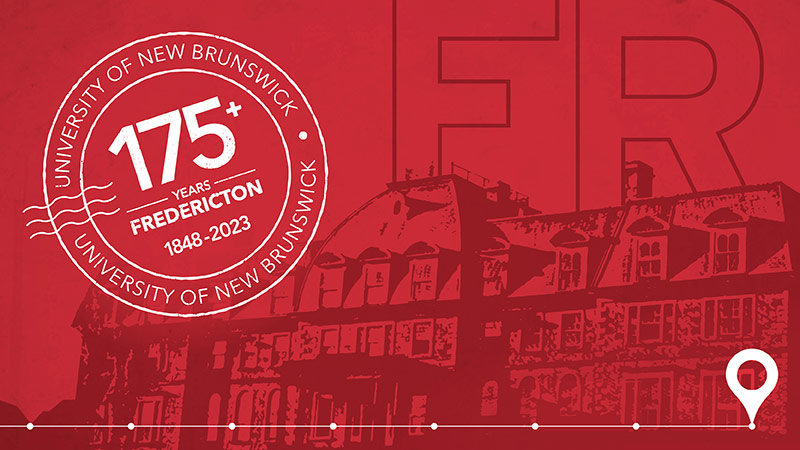
The Fredericton 175+ celebrations are underway this month, commemorating the city's anniversary, which was incorporated in 1848. The University of New Brunswick (UNB), founded in 1785, has been a critical part of the development of the province’s capital city.
The university has educated the city’s residents, amongst them the leading politicians, entrepreneurs, artists and community leaders. It has erected many of Fredericton’s iconic buildings, incubators of innovation that have spawned great companies and ground-breaking research. UNB is a vital part of the local economy, with thousands of faculty members, staff and students that buy homes, rent apartments and support the growth of the city’s growing retail and services sectors.
As part of the city’s anniversary celebrations, we offer this glimpse of key moments in the university’s history that helped shape Fredericton. Thanks go to Susan Montague, author of A Pictorial History of the University of New Brunswick, and John Leroux, author of Building a University: The Architecture of UNB, for the source material for this article.
1829: Campus transforms city landscape
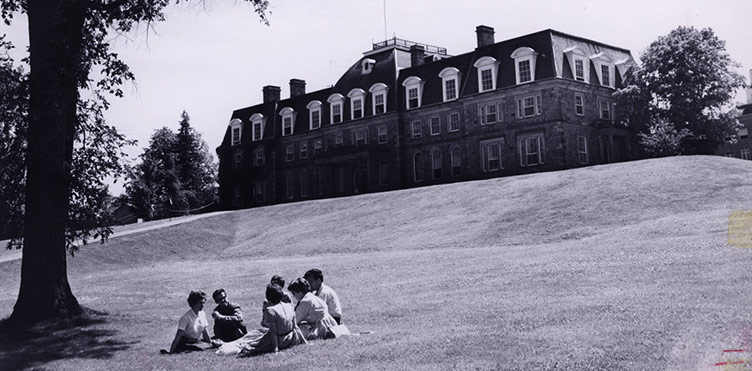
The founding of the university dates to 1785, but the development of the Fredericton campus itself began in 1829 with the construction of the first main building, New College Building (now known as Sir Howard Douglas Hall). The chosen designer was J.E. Woolford, the architect of the lieutenant governor’s residence, Government House. In those early decades, there were living quarters for students and staff, and it was the place they held church services and classes. A third floor was added in 1877. Until 1900, it would remain the university's only major building.
1854: First engineering program in British North America
For nearly two centuries, UNB has developed programming that has attracted students to the city to study in high-value fields like law, forestry, computer science and engineering. Many of these graduates have entered the workforce after graduation. In a series of “firsts” for UNB, the college council hired practical engineer McMahon Cregan to teach a certificate course in civil engineering, the first formal program of this kind to be offered in British North America.
1886: UNB admits first woman, graduates first black student
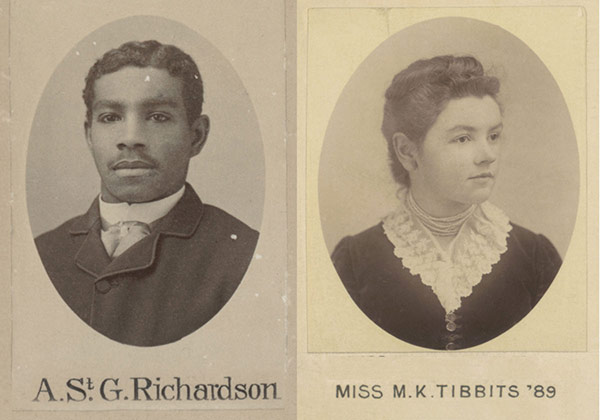
Like most universities that are hundreds of years old, UNB began as an educational institution exclusively for white men. Nowadays, the university is at the forefront of efforts to make Fredericton and New Brunswick, as a whole, a more multicultural and gender-inclusive community. For UNB, that journey began in the late 19th century with a pair of ground-breaking students. In 1886, Arthur St. George Richardson graduated with honours from UNB, the first Black person to attend a New Brunswick University. In the same year, Mary Kingsley Tibbits became the first woman to attend UNB after successfully challenging institutional efforts to keep the school a male-only domain. She graduated with honours in 1889 and would go on to have a career full of highlights, including becoming the first woman to become a school principal in New Brunswick.
1900: UNB doubles in size, from one building to two
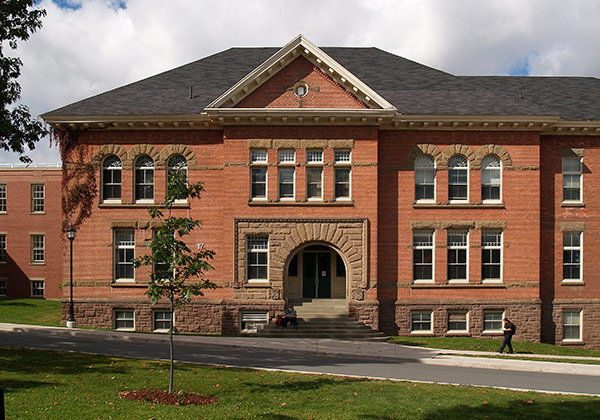
As a contribution to the development of Fredericton, architectural historian John Leroux emphasizes “the omnipresent aesthetic and beauty of the red brick campus ‘up the hill.’” In particular, the UNB grad mentions the construction of the engineering building at the beginning of the 20th century. “This brick and stone Romanesque Revival structure, built and equipped for $25,000, effectively doubled the classroom space of the university upon its completion in 1901,” wrote Leroux in Building a University. In the early days, the building housed the chemistry, physics and engineering departments, freeing up space in the Old Arts Building for other departments and the library.
1959: Fredericton gets its first computer
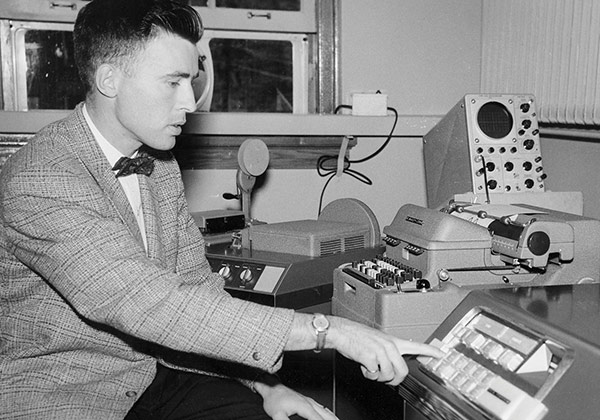
The engineering department has been key in many ground-breaking moments in UNB’s history. In this case, it hosted the university's first commercial computer, purchased with the support of the New Brunswick Electrical Power Commission. A computing centre opened in 1964 and courses in computing offered through the department of electrical engineering. In 1972, the school of computer science was launched through the department. It became the first in the Atlantic provinces to offer a PhD program and the first in Canada to establish a faculty of computer science in 1990.
2000s: The institutes
UNB has always been a community-based institution that helped address economic and social issues beyond the walls of the university. But it’s moving quickly to respond to emerging partnership opportunities with external players in the private and public sectors. Just last week, the university broke ground on a building that will house the Integrated Health Initiative (IHI), an emerging centre of excellence for New Brunswick and Canada. IHI is but one of a growing list of institutes and centres, which includes the McKenna Insitute, Pond-Deshpande Centre, the J. Herbert Smith Centre for Technology Management and Entrepreneurship, the Canadian Institute for Cybersecurity, the Integrated Health Initiative and the Institute of Biomedical Engineering. All these centres and institutes nurture entrepreneurial solutions to economic and social challenges in Fredericton and across the province.
2018-23: The economic impact
UNB employs nearly 2,000 people, most of whom work in the Fredericton area, pay taxes and support the local economy. The university nurtures companies, Q1 Labs and Radian6, two high-profile examples, that employ people and generate wealth in Fredericton and across the province. It constructs new buildings that support local companies and create jobs for their employees. The university attracts visitors for commencement activities, sports events and other activities sponsored by the university that boost the tourism industry. UNB did its last economic impact study just prior to the pandemic and measured the overall impact in the province to be $1.8 billion in a single year.
